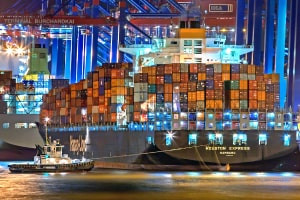Many of us have heard about international trade but what do we understand about it? What does it involve and why do countries decide to participate in international trade? This type of trading is not as simple as normal, day-to-day ‘trading’ and it is definitely not just about selling a product. How do countries of the world decide what product to export and what product to import? How do these countries decide with whom they should trade and how they should go about it? How do they decide if they should trade for foreign currencies or a needed product? These and many more questions will be answered in this short course.
The material has been designed to help you understand what international trade is all about. It begins by introducing you to the history of international trade, the legal framework involved as well as the institutions that help to drive it. Topics covered include trade controversies, the General Agreement on Tariffs and Trade (GATT) as well as the Uruguay Round, giving you a comprehensive understanding of how current trade policies came into place. You will then move on to learn about the Ricardian Theory of Comparative Advantage, including the assumptions it makes, the difference between absolute and comparative advantage, and the motivation for international trade. The course then teaches you about the pure exchange model of trade, with examples of trade patterns, before moving on to discuss economies of scale, monopolistic competition, factor mobility, income redistribution and the effect of trade on real wages.
Are you an industrialist who produces goods and services? International trade affects you because chances are some of the raw materials you use for production are not manufactured in your country but are imported. Having a full understanding of international trade policy can be vital for the success of your business. Are you a local business person involved in buying and selling? International trade affects you. Are you an economist who is looking to get more understanding about how internal trade can affect your country’s economy? This course on international trade will be very useful in answering many of the questions you might have. International trade doesn’t just affect the government; it affects all of us from the work we do to the products we can buy and the prices we can buy them for. Whether you are a business person who’s looking to know how your country’s international trade policies affect you or a student looking to expand your knowledge, this course will provide you with the knowledge and tools to take your study of international trade to the next level.
What You Will Learn In This Free Course
View All Learning Outcomes View Less All Alison courses are free to enrol, study, and complete. To successfully complete this Certificate course and become an Alison Graduate, you need to achieve 80% or higher in each course assessment.
Once you have completed this Certificate course, you have the option to acquire an official Certificate, which is a great way to share your achievement with the world.
Your Alison certificate is:
- Ideal for sharing with potential employers.
- Great for your CV, professional social media profiles, and job applications.
- An indication of your commitment to continuously learn, upskill, and achieve high results.
- An incentive for you to continue empowering yourself through lifelong learning.
Alison offers 2 types of Certificate for completed Certificate courses:
- Digital Certificate: a downloadable Certificate in PDF format immediately available to you when you complete your purchase.
- Physical Certificate: a physical version of your officially branded and security-marked Certificate
All Certificate are available to purchase through the Alison Shop. For more information on purchasing Alison Certificate, please visit our FAQs. If you decide not to purchase your Alison Certificate, you can still demonstrate your achievement by sharing your Learner Record or Learner Achievement Verification, both of which are accessible from your Account Settings.












 Avg. Hours
Avg. Hours  CPD Accredited
CPD Accredited 
 Total XP:
Total XP: 
 Knowledge & Skills You Will Learn
Knowledge & Skills You Will Learn 







